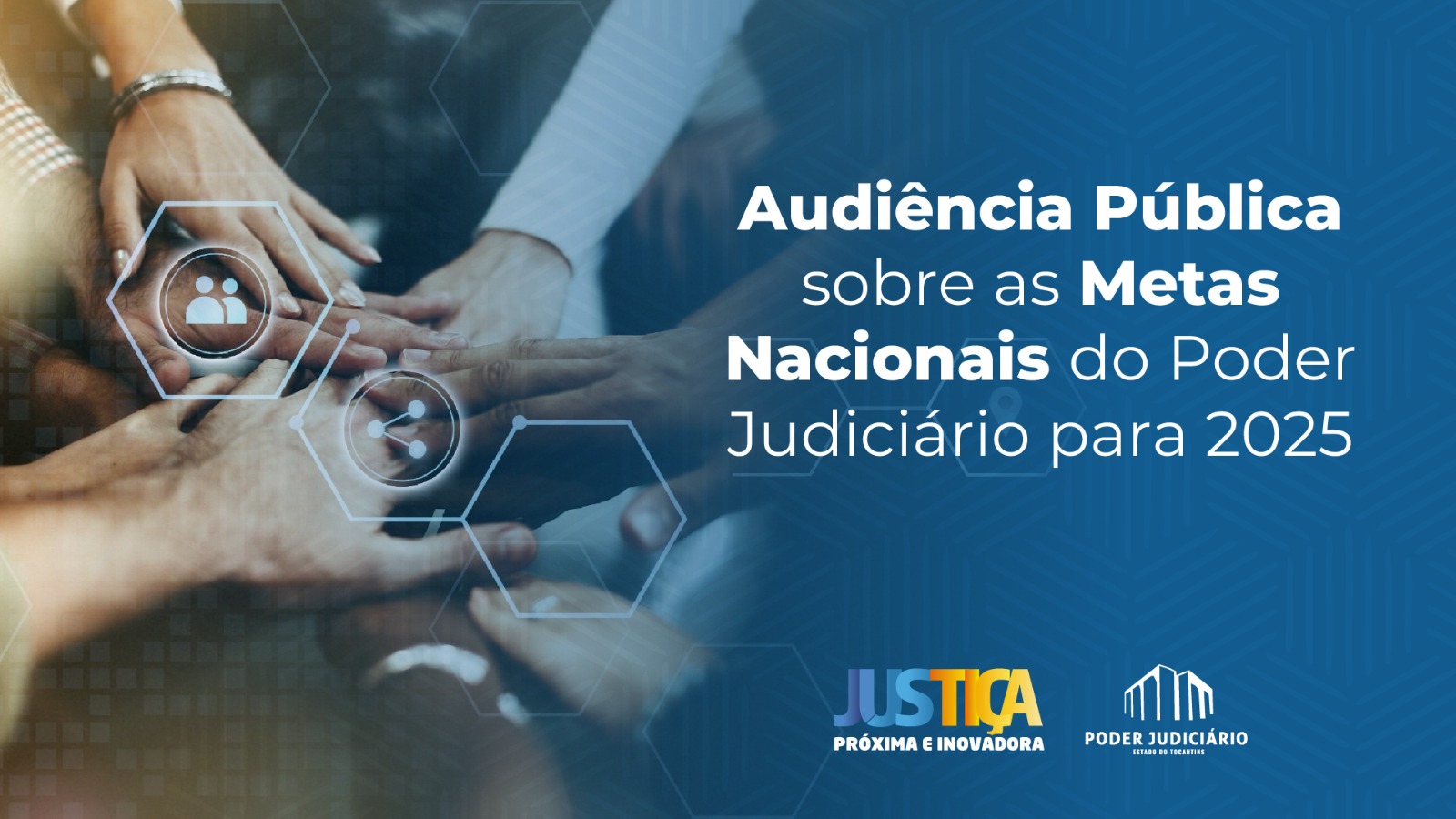
The Strategic Management Coordination (Coges) of the Court of Justice of the State of Tocantins (TJTO), through the Participatory and Democratic Management Commission, will hold a Public Hearing on the National Goals of the Judiciary for 2025 next Tuesday (June 25th), between 10 and 11:30 am.
The meeting, which will take place virtually, aims to bring together not only representatives of the Justice System, but also members of civil society to discuss suggestions and proposals aligned with the online Public Consultation, promoted by the National Network for Collaborative Governance of the State Justice, with the 27 state courts of Brazil.
The event will be broadcast on YouTube, at this link.
Public Hearing
Under the coordination of the Court of Justice of the State of Bahia (TJBA) and based on the Resolution 221/2016 of the National Council of Justice (CNJ), this Public Consultation, available between June 17th and July 2nd, in addition to the establishing principles of participatory and democratic management for the improvement of judicial provision, is an opportunity for citizens from all over society to contribute to a more agile judiciary, with greater efficiency and quality.
To take part, simply click here and access the forms according to the respective profiles: citizen; defender; magistrate; lawyer; member of the State Prosecution; and civil server.
National Goals
The goals represent the commitment made by the Presidents of the Brazilian courts to improve the delivery of justice services to citizens, with the aim of making society fairer and more inclusive. Since its creation by the Resolution 70/2009 of the CNJ (repealed by the Resolution 198/2014 of the CNJ), the bodies of the Judiciary have met annually to redefine the goals and to outline the strategies for the following year.
Currently, they are National goals for the State Judiciary:
|
Goal 1: Judge a greater number of knowledge cases than those distributed in the current year, excluding those suspended or stayed in the current year. |
|
Goal 2: Identify and judge, by December 31st of 2024, at least 80% of the cases distributed by December 31st of 2020 in the 1st level, 90% of the cases distributed by December 31st of 2021 in the 2nd level, 90% of the cases distributed by December 31st of 2021 in the Special Courts and Appellate Classes and 100% of the knowledge cases pending judgment for 14 years (2010) or more.. |
|
Goal 3: Increase the Index of Conciliation of the Justice in Numbers indicator by 1 percentage point compared to 2023. Barrier clause: 17% of the Conciliation Index. |
|
Goal 4: Identify and judge, by December 31st of 2024, 65% of the administrative improbity actions and criminal actions related to crimes against the Public Administration, distributed by December 31st of 2020, especially those related to active and passive corruption, embezzlement in general and concussion. |
|
Goal 5: Reduce by 0.5 percentage points the net congestion rate in knowledge proceedings, compared to 2023. Barrier clause: 56%. |
|
Goal 8: Identify and prosecute, by December 31st of 2024, 75% of cases of femicide distributed by December 31st of 2022 and 90% of cases of domestic and family violence against women distributed by December 31st of 2022. |
|
Goal 9: Implement, by 2024, two projects originated from the innovation laboratory, in the development of which at least one laboratory from another court has participated, with an assessment of the benefits to society and related to the 2030 Agenda. |
|
Goal 10: Identify and judge, by December 31st of 2024, 35% of the cases related to environmental actions, 35% of the cases related to the rights of indigenous communities and 35% of the cases related to the rights of quilombola communities, distributed by December 31st of 2023. |
|
Goal 11: Identify and judge, by December 31st 2024, 90% of the cases in the 1st degree and 100% of the cases in the knowledge phase, in the competencies of civil Childhood and Youth and the investigation of infractions, distributed by December 31st of 2022 in the respective instances. |




